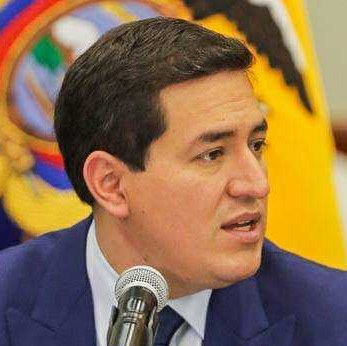November 05, 2021
After a long holiday, and President Guillermo Lasso’s attendance at the United Nations Climate Change Conference and an official visit to Spain, the Ecuadorian National Assembly readies for the release of the Pandora Papers report by the Congressional Commission investigating the president. The report looks into Mr. Lasso’s offshore dealings since 1978, and the “Pandora Papers” revelations by the International Consortium of Investigative Journalists (ICIJ). The Commission’s members meet today to review and approve the report before heading into the National Assembly plenary session.
A scathing report
A draft copy of the report, which circulated this morning — and was confirmed by various sources — is alarming for the president. Although the Commission does not have prosecutorial capabilities, its conclusions will likely result in further inquiries by the nation’s prosecutor (an investigation is already in its preliminary stages). The first part of the report establishes the role of capital flight and tax evasion in the Ecuadorian economy. It highlights the extensive web of offshore entities by the president and the Ecuadorian elite, and reveals conflicts of interest between public office and billionaire politicians.
The Commission’s recommendations to prosecute include the legal bases of perjury, bank fraud, and tax evasion, among others.
Aside from the ethics and the universal discussion around tax havens, the Commission’s report centers around a critical element: did Mr. Lasso break the law, known as the Ethical Agreement Law, which prohibits candidates and public officials from owning, directly or indirectly, assets or holdings in jurisdictions that Ecuador considers to be tax havens? The law stems from a 2017 referendum that resulted in an amendment to the electoral law (Código de la Democracia), including the inability to register as a candidate while exerting indirect property of an offshore entity. Indirect property is loosely defined to include being an officer, beneficiary, or a member of offshore entities, but also exerting de facto control or benefit.
The Commission summoned officials from the Internal Revenue Service, the Electoral Council, the comptroller’s office, the president, his wife, and his eldest son. Mr. Lasso and his family rejected the invitation to appear before the Commission. In an interview, Mr. Lasso labeled the congressional investigation an “ideological circus.” As for officials, their appearances made headlines, not because of the information revealed but by a lack of transparency. Invoking the need for express consent by Mr. Lasso, the Commission did not have access to certain tax filings and other relevant information. Mr. Lasso, in a televised address, wrongly stated that he had lifted confidential restrictions.
Lasso’s offshore accounts come full circle.
In 2017, gearing up to his second run for the presidency, Mr. Lasso made significant offshore moves by merging, name changing, dissolving, transferring, and opening new entities, mainly as a political move to fight off the referendum. He lost to Lenín Moreno.
By 2020, with the new law in effect, Mr. Lasso, with the help of Trident Group, engineered a new organization of his assets abroad. The unearthed trusts revealed in the Pandora Papers establish that two South Dakota trusts, Bretten Trust and Liberty US Trust, were used to hold the dissolved companies and assets. Mr. Lasso and his lawyers contend that he does not have control over those trusts. However, South Dakota trust legislation allows for other possibilities of de facto control, such as by a trust protector, an investment advisor, or a family advisor.
Among the dozens of companies in Ecuador and overseas, five entities stand out in the congressional report: Banisi S.A., Banisi Holdings S.A., Banisi International Foundation, Barberini Foundation, and Pietro Overseas S.A. Mr. Lasso’s children are the beneficiaries of Banisi International Foundation. The report substantiates that Pietro Overseas S.A. transferred its shares of Banisi Holdings S.A., which owns Banisi S.A., to the Banisi International Foundation after September 10, 2020.
According to the report, the Banking Law of Panama mandates that the authorization to transfer shares can only become effective five business days after the filing — in this case, September 17, 2020. This is a crucial date, since on September 14, 2020, Mr. Lasso dissolved Pietro Overseas S.A. The report questions whether a dissolved entity can transfer its shares, and points to a probable simulation and that even though the Banisi Holding S.A. shares are in a private interest foundation, Lasso still exerts indirect control over those shares.
Another key finding is the role of the Barberini Foundation. The ICIJ released Barberini’s operating agreement, which designated Mr. Lasso as “protector” of the foundation. Barberini owned Pietro Overseas S.A. This scheme, the report states, can determine whether Mr. Lasso is the indirect owner of the company that owned Banisi Bank in Panama, and would therefore have broken the law.
What’s next?
It’s a complicated scenario. The official stance seems to be to want to run out the clock and take advantage of the complexity of the offshore scheme for the general public. The report’s release will only increase calls for a complete investigation — an investigation that would likely expand to Mr. Lasso’s family and inner circle.






